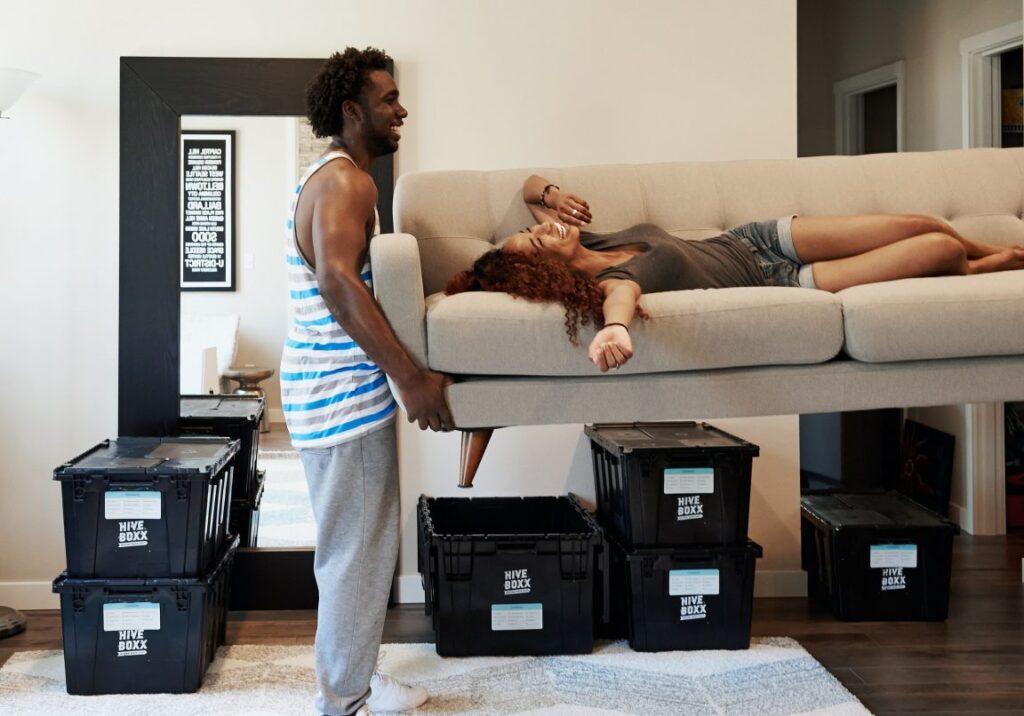
Ideal for those looking to move out of their shared accommodation or flat.
Haven’t got enough space in your flat or apartment but are not yet ready to buy? Renting a room in a shared house and want to make the move to your own place, but would prefer to rent again? These are turbulent times and it’s understandable that many aren’t keen on buying a house outright, right now.
But even deciding to rent a larger place represents a big step into the unknown. It requires careful thought, more money in deposits, the potential for larger bills, and of course, the likelihood of higher rent. Therefore, such a decision, to change from flat to house, shouldn’t be taken lightly. We’re here to help you make up your mind; here are 5 tips for renting your first home, IDEAL for those looking to move out of their shared accommodation or flat.
CHECK YOUR FINANCES
According to research, the average monthly cost of renting a property is 34% of your pre-tax income. If you’re planning to rent a whole house – well, that’s going to cost more than a room in a shared house or a flat, let’s put it simply.
What’s more, the average rent for a house in the UK has generally increased in the last year, with rent swallowing a massive chunk of earnings. Before signing on the dotted line, do make sure that you can afford to upsize by doing a thorough overview of your monthly budgets and making sure your new rental agreement is as far below a third of your salary as possible. Much above and it will be difficult to afford it.

CHOOSE A REPUTABLE RENTAL COMPANY
First things first, or rather, second things second; whether you’re looking at homes for rent here or abroad, it’s important to do your due diligence and choose a reliable company or estate agent to facilitate the deal.
Lots of rental companies and estate agents have fully shifted online, and while this is brilliant for the variety on offer – you have millions of properties at your fingertips to choose from – on the flip side, you’re more at risk of being scammed. Though a collection of positive reviews of their services offer some proof that a home rental service is reliable, always be critical about these reviews and remember that a couple of red flags are enough for you to decide not to push through.
That said, don’t limit yourself just to online estate agents. Show your face in some High Street estate agents, too, which offer a more personal feel and bespoke service. You could also consider private landlords, but be warned, if you’re going private or using lesser known agencies, it’s important to be aware of fraudsters, which brings us to our next point…
BE AWARE OF SCAMS
While it’s important to choose a reputable company, it’s important to be aware of rental scams. Unfortunately, rental fraud is on the rise with fraudsters preying on prospective tenants’ with the lure of cheap rents and savvy techniques. Check out The Tenant’s Voice guide on how not to get some scammed, some of which includes advice to:
- Request your landlord’s ID (yep, these background checks are a two way thing)
- Check the land registry to confirm the property’s owner
- Look for landlords who are part of some third party organization or association, like NLA, RLA, The Guild of Residential Landlords.
- Always visit the property you’re about to pay for
- Request a copy of the tenancy agreement and any other document you’d – normally receive when you move in
- Don’t hand in money without a receipt
And finally, if you do get scammed, report the scam to Action Fraud, part of the National Fraud & Cyber Crime Reporting Centre.

DON’T FORGET TO HAGGLE
Though this isn’t necessarily as to-and-fro as the souks of Marrakech or markets of Thailand, there is still room for some haggling where rental agreements are concerned.
Start with an offer below what they are asking. Remember that you have an upper hand here especially if the property has been on the market for a while – the longer the property goes unrented, the longer the landlord has been without income. This is particularly pertinent now, during a global pandemic, when landlords across the country are having to lower their rental asking price. Long may it continue.
Requesting even a small rent reduction can add up over time, so don’t be afraid to ask. You can also ask for changes in the property to better suit your needs – especially if you’re going to be living here for a while.
DEPOSITS & INVENTORIES
It’s important to make sure your deposit is protected. There are two types of deposit – a holding deposit and a tenancy deposit, with the latter required to be secured in a “tenancy deposit scheme”, rather than simply going into your landlord’s bank account for them to spend. Do insist on checking that this is the case.
To safeguard your deposit, make sure you do your own inventory check and compare it to your Landlord’s. Ideally, a third party will be employed by the landlord do this, but it’s still worth carrying your own out, too, to avoid any funny business. If there are any discrepancies in your inventories, insist on everyone being present to recheck the house and its contents; this should be done before you move in so you don’t invalidate your deposit. Check out Shelter’s invaluable advice on how to check and agree an inventory for more.
THE BOTTOM LINE
Four walls, a roof, a door, perhaps some windows; a rough approximation of a house right there. But a home is so much more than the sum of its physical parts; a living space where you feel sheltered and sustained, somewhere you miss when you’re away and holds you in a warm embrace when you return, regardless if you’re renting or you own your property outright. There really is no place like it.
Should you be wondering where to live in the UK, then check out our guide on 5 of the most affordable cities to rent in the UK in 2020, IDEAL for those looking for a budget-friendly fresh start.





